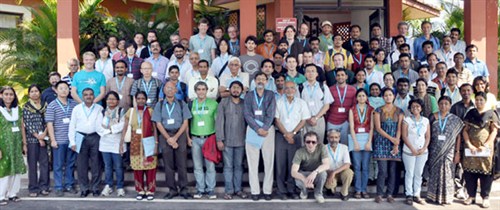ICTP recently sponsored a Conference on Research Frontiers in Ultra-Cold Atomic and Molecular Gases in Goa, India, that attracted about 100 scientists.
Over the past decade investigations of ultra-cold quantum gases
have revealed a wealth of intriguing phenomena. Ultra-cold gases
provide highly controllable systems, which aid in the investigation
of many known condensed matter phenomena such as
superfluid-insulator transition, Bose-Einstein condensation (BEC)
and Bardeen-Cooper-Schrieffer (BCS) crossover, and Anderson
localization.
In addition, ultra-cold atomic and molecular gases reveal
completely new phenomena which might previously have seemed very
challenging or even impossible to realize or imagine. Applications
of ultracold gases range from quantum computers and quantum
simulators to ultra-high-precision atomic clocks and quantum
metrology.
The aim of the international ICTP conference, which took place
from 10 to 14 January 2011, was to discuss current research
frontiers, with a focus on the analysis of novel quantum phases and
quantum phase transitions in mono-atomic gases, mixtures of
fermionic and bosonic atoms in traps and optical lattices and its
applications to quantum information processing and metrology. The
conference was co-sponsored by the Department of Atomic Energy
(DAE) Board of Research in Nuclear Sciences (BRNS), National
Physical Laboratory, Goa University, Indian Institute of
Astrophysics, and ICTP.
Below: Conference participants.

















